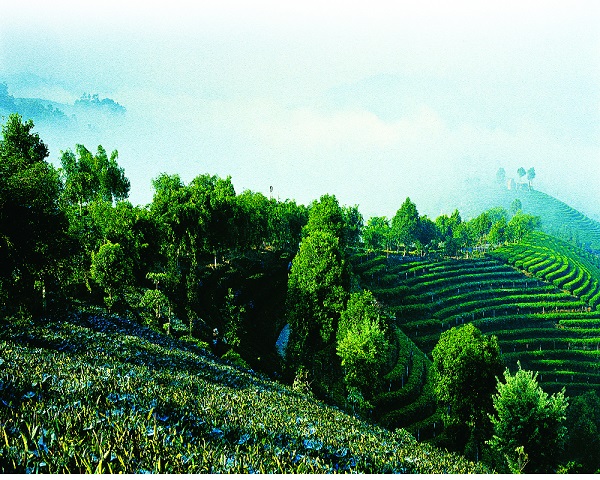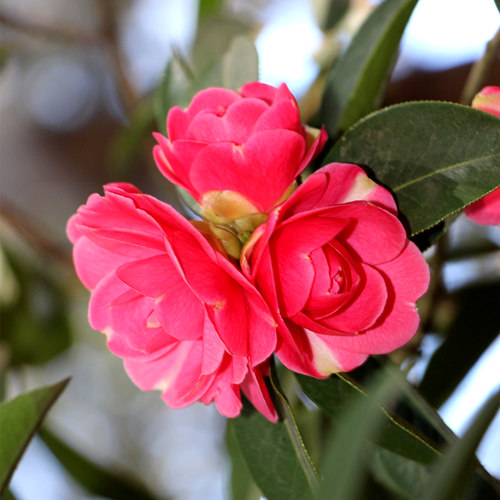
Detailed Introduction to Yaoan County of Chuxiong Prefecture
Yao'an County (姚安县) is an important administrative division under Chuxiong Yi Autonomous Prefecture in central Yunnan Province, China. With a history that stretches back centuries and a vibrant mix of ethnic cultures, Yao'an is renowned for its scenic rural landscapes, agricultural abundance, and unique cultural heritage. The county’s strategic location and traditional industries—especially tea production—contribute to its role as a vital regional hub in central Yunnan.
Geographical Location and Climate
Location:
Yao'an County is situated in the northern part of Chuxiong Prefecture. Covering an area of approximately 2,800 to 3,000 square kilometers, the county lies on the Yunnan-Guizhou Plateau. Its terrain is characterized by rolling hills, fertile valleys, and patches of rugged mountains, which have been shaped by centuries of traditional agricultural practices.
Climate:
Yao'an enjoys a subtropical monsoon climate with mild winters and warm, humid summers.
Temperature: Average annual temperatures typically range between 14°C and 22°C.
Rainfall: The county experiences a pronounced rainy season during the summer monsoon, ensuring that its fields remain lush and productive year-round.
Environmental Features: The region benefits from abundant water resources due to numerous small rivers and streams, which irrigate its terraced fields and support diverse ecosystems.
Historical Background
Yao'an County has a rich historical legacy deeply rooted in its role as a center for agricultural trade and ethnic exchange:
Ancient Trade Routes: Historically, Yao'an was part of the network of trade routes that connected Yunnan with Tibet and Southeast Asia, including segments of the ancient Tea Horse Road. This contributed to its development as a vibrant market for tea, tobacco, and local handicrafts.
Ethnic Settlement: Over the centuries, Yao'an has been home to various ethnic groups, most notably the Yi, along with significant communities of Hui and Han. Their diverse traditions have interwoven to form a unique cultural tapestry that endures today.
Modern Administration: Established as a county within Chuxiong Prefecture during the mid-20th century, Yao'an has progressively modernized while preserving its historical character and traditional way of life.
Economic Overview
Yao'an’s economy is predominantly agrarian, with a steadily diversifying industrial base and growing tourism sector.
Agriculture
Tea Production: The county is part of the renowned Pu'er tea-producing region. Its highland tea gardens yield high-quality tea leaves prized for their distinctive flavors and aromas. Traditional methods blend with modern techniques to boost productivity and quality.
Tobacco Cultivation: Yao'an is known for its production of premium tobacco, a major cash crop that has long supported the local economy.
Food Crops and Specialty Agriculture: The fertile soils support a range of staple crops such as rice, maize, and vegetables. Additionally, fruits (like apples and pears) and medicinal herbs are cultivated extensively, contributing to both local consumption and export markets.
Small-Scale Industries and Trade
Agro-Processing: Local enterprises process tea, tobacco, and other agricultural products, adding value before distribution to regional and national markets.
Cross-Regional Trade: Yao'an’s strategic location on historic trade routes continues to facilitate commerce, particularly in agricultural and artisanal products.
Tourism
Eco- and Cultural Tourism: The natural beauty of terraced fields, traditional villages, and scenic landscapes, combined with rich ethnic heritage, has spurred the development of tourism initiatives. Local festivals and cultural events draw visitors keen to experience authentic Yi traditions and rural life.
Ethnic and Cultural Heritage
Yao'an County is culturally diverse, with a rich legacy shaped by centuries of ethnic intermingling.
Yi Culture
Traditional Festivals: The Yi people celebrate the Torch Festival with bonfires, traditional dances, and communal feasts—a vibrant expression of their agricultural heritage and ancestral reverence.
Artisan Crafts: Yi embroidery, silver jewelry, and wood carving are hallmark crafts that not only preserve ancient techniques but also serve as key cultural exports.
Hui and Han Influences
Cultural Fusion: The Hui community adds distinctive Islamic traditions, reflected in culinary practices and festive celebrations, while Han cultural elements—such as classical festivals and modern educational values—blend seamlessly into the local lifestyle.
Preservation



